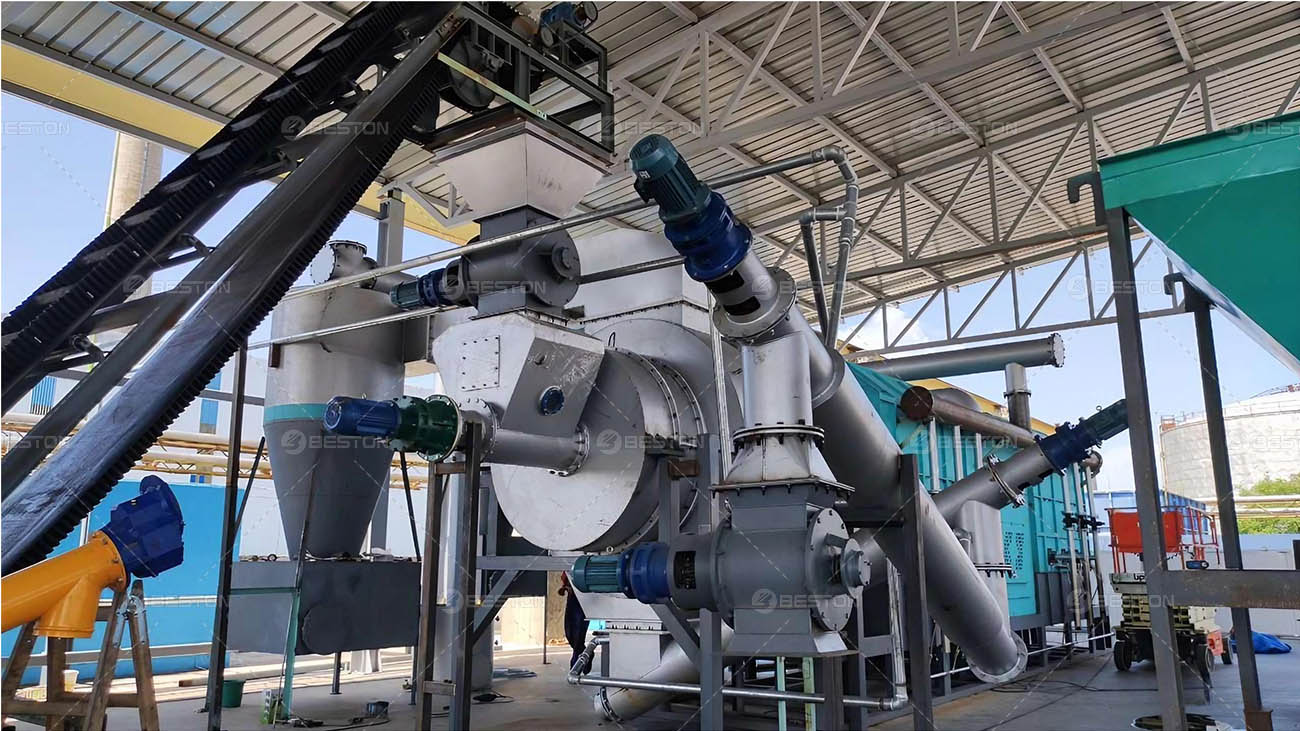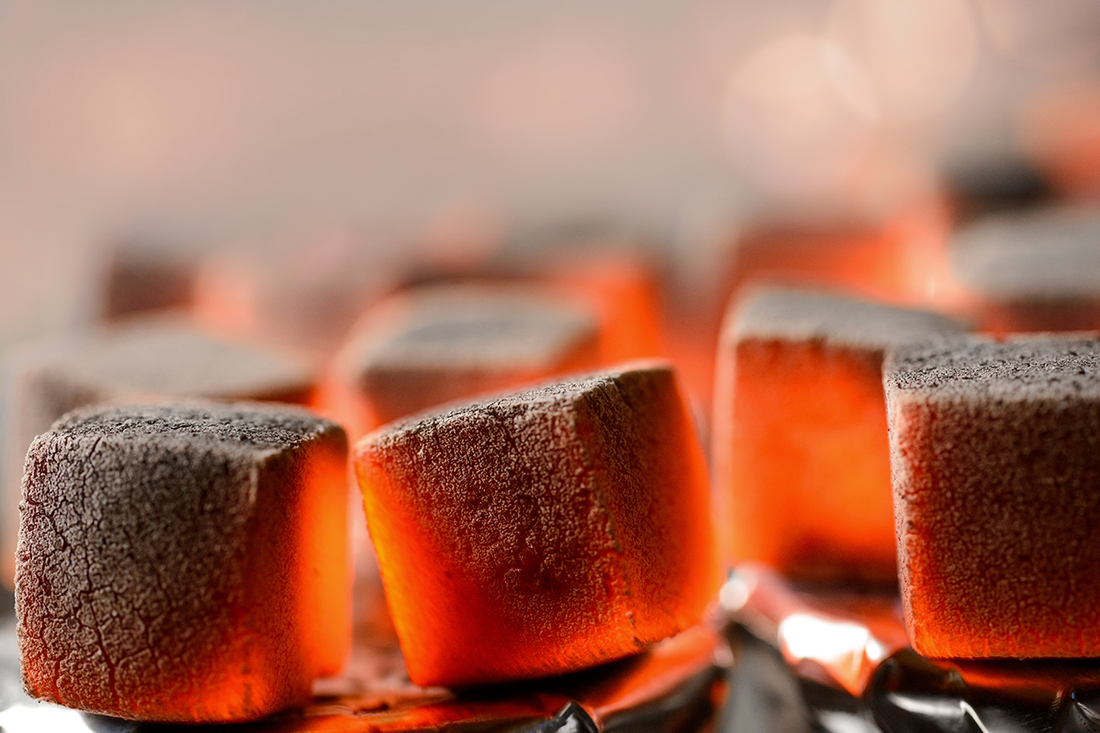Why Coconut Shell is Best Biomass for Shisha Charcoal Production?
Introduction
Shisha, also known as hookah, is a popular smoking practice enjoyed worldwide. Central to this experience is the quality of the charcoal used. Among various raw materials, coconut shells have emerged as the superior choice for shisha charcoal production. This article delves into the reasons why coconut shell is considered the best raw material for shisha charcoal, highlighting the benefits it offers over other materials and the role of the charcoal making machine in the production process.

Superior Combustion Properties
High Calorific Value
Coconut shells possess a high calorific value, which translates to a higher energy output during combustion. This ensures a consistent and steady heat source, essential for a satisfying shisha experience. The high energy density means that coconut shell charcoal burns longer and more efficiently, reducing the need for frequent replacement.
Low Ash Content
One of the significant advantages of charcoal from coconut shell charcoal machine is its low ash content. During combustion, it produces minimal ash, resulting in a cleaner smoking experience. Low ash production also means less residue to clean, maintaining the shisha pipe’s functionality and reducing maintenance efforts.
Smokeless and Odorless
Coconut shell charcoal burns with minimal smoke and odor, enhancing the overall shisha experience. The absence of smoke ensures that the flavors of the shisha tobacco are not overshadowed by the smell of burning charcoal. This characteristic is particularly important in enclosed spaces where shisha is commonly enjoyed.
Environmental Sustainability
Renewable Resource
Coconut shells are a renewable resource, making them an environmentally friendly choice for charcoal production. The utilization of coconut shells as a raw material supports sustainable practices, as it repurposes waste from the coconut industry. This not only reduces waste but also provides an additional revenue stream for coconut farmers.
Reduced Deforestation
Using coconut shells for charcoal production helps in reducing deforestation, which is a significant issue with traditional wood-based charcoal. By opting for coconut shell charcoal, the pressure on forest resources is alleviated, contributing to the preservation of natural habitats and biodiversity.
Lower Carbon Emissions
Coconut shell charcoal production results in lower carbon emissions compared to traditional charcoal. The carbonization process, especially when using a charcoal making equipment, is more efficient and controlled, reducing the overall carbon footprint. This aligns with global efforts to combat climate change by lowering greenhouse gas emissions.

Economic Benefits
Cost-Effective Production
Coconut shells are often considered agricultural waste, making them a cost-effective raw material for charcoal production. The availability of coconut shells in coconut-producing regions ensures a steady supply at a lower cost. This economic advantage translates into affordable shisha charcoal, benefiting both producers and consumers.
Value Addition
The transformation of coconut shells into high-quality shisha charcoal adds significant value to what would otherwise be waste. This value addition supports local economies by creating jobs and generating income. The charcoal making machine plays a crucial role in this process by ensuring efficient and consistent production.
Technical Advantages
Uniform Density
Coconut shell charcoal is known for its uniform density, which contributes to a consistent burn rate. This uniformity ensures that each piece of charcoal performs similarly, providing a reliable heat source for shisha smoking. Uniform density also aids in the production of evenly sized charcoal briquettes, which are preferred in the shisha market. You can consult Beston Group Co., Ltd. to get the best solution for producing hookah charcoal.
High Mechanical Strength
The high mechanical strength of coconut shell charcoal ensures that it does not crumble easily during handling and transportation. This durability is essential for maintaining the integrity of the charcoal, ensuring that users receive high-quality briquettes that light easily and burn effectively.
Compatibility with Charcoal Making Machines
Coconut shells are highly compatible with modern charcoal making machines. These machines are designed to efficiently process the shells into high-quality charcoal with minimal waste. The compatibility with machinery enhances production efficiency, ensuring a steady supply of superior shisha charcoal.
Health and Safety Considerations
Fewer Harmful Emissions
Coconut shell charcoal emits fewer harmful substances compared to traditional wood-based charcoal. The reduced emission of volatile organic compounds (VOCs) and other toxic substances makes it a safer option for indoor use. This characteristic is crucial for shisha enthusiasts who often smoke in enclosed spaces.
Consistent Quality
The consistent quality of coconut shell charcoal ensures that users are exposed to fewer contaminants. The controlled production process, particularly when using a shisha charcoal making machine, minimizes the presence of impurities. This consistency enhances the safety and enjoyment of the shisha smoking experience.
Ease of Ignition
Coconut shell charcoal ignites easily and maintains a steady burn, reducing the risk of flare-ups and accidental fires. This ease of ignition is a significant safety feature, ensuring that users can safely and efficiently prepare their shisha without undue risk.
Conclusion
The selection of raw material for shisha charcoal production is pivotal to the quality of the smoking experience. Coconut shells, with their superior combustion properties, environmental sustainability, economic benefits, and technical advantages, stand out as the best raw material for this purpose. The role of the charcoal making machine in transforming coconut shells into high-quality charcoal further enhances its appeal. By opting for coconut shell charcoal, producers and consumers alike contribute to a more sustainable, enjoyable, and safe shisha experience. As the demand for shisha continues to grow, the adoption of coconut shell charcoal ensures that this popular pastime is supported by a renewable, efficient, and environmentally friendly resource.